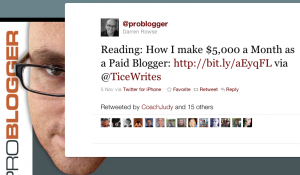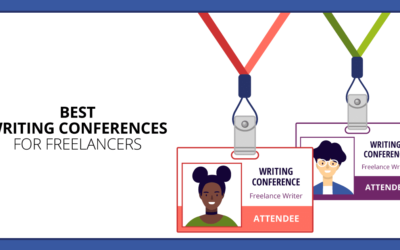 Recently, I was reminded that many freelance writers are still new to social media. One Freelance Writers Den member commented that she was down on Twitter.
Recently, I was reminded that many freelance writers are still new to social media. One Freelance Writers Den member commented that she was down on Twitter.
Why? She had tweeted some writers’ stuff, and they had not immediately reciprocated by retweeting some of her stuff.
So now she was mad at them. She also thought social media didn’t work. She didn’t see how using it would help her promote her writing.
I’ve given out tips on social media before — on how to get the most out of Twitter, and LinkedIn…and I had a guest post with more tips on using LinkedIn, too. Plus a fascinating one recently on Pinterest…though I consider LI and Twitter currently the two most important platforms freelance writers should get to know.
But it seems like we need to back up and talk first about how social media works.
There are a million different platforms, but the principles are basically the same. If you read this a year from now, there may be some new platform that’s the hot thing. But I think the basic idea of how to use social media to promote yourself and find clients won’t change.
The first thing to know is social media is a viable platform for promoting yourself and finding clients, as well as sources for stories, trend ideas for pitches, and lots more. I’ve gotten hired by several Fortune 500 companies through LinkedIn, and did $14,000 of business with just one editor I reached out to on Twitter last year.
So yes, social media is worth doing — if you know what you’re doing.
Here is how social media really works:
- Begin by listening. Social media is a conversation. Listen in and find out what’s going on. Start learning about trends and topics that are of interest to people in your niche.
- It’s about being helpful. Social media is like a gigantic networking meeting. Focus on finding out how you can help others, and you won’t go wrong.
- Start searching. Begin looking for people who are popular and talk about your subject. Watch what they do. Start reading their stuff.
- Learn the etiquette. Every platform has its own flavor. On Twitter, there’s hashtags that help you follow topics, for instance. Get the hang of the slang.
- Make new friends. You can meet the most amazing people through social media. Read and follow people whose stuff you like. Then, connect with or follow them, and start a conversation. Invite them to take a Skype virtual lunch with you. Find out how you could collaborate.
- Reach out proactively. Don’t wait to get discovered like Lana Turner on a barstool at Schraffts drugstore on Hollywood Boulevard in the 1930s. That might happen — that’s
actually how I ended up guest posting on Copyblogger — but you don’t want to bet the farm on it. So once you’ve gotten acquainted with some influential people, start sending them stuff and asking them to share it with their audience, as in “Your readers might like [LINK].” If you do this right, the result looks like this tweet on the right.
- Don’t expect tit-for-tat. People are not going to retweet your post because you retweeted theirs, because that’s not the point of social media. It’s not a link-exchange club. Every person is on social media to help their audience with useful stuff and build their reputation so they can occasionally promote their own stuff a bit, too. They’re going to spread your content if it’s amazingly helpful to their followers. If it’s not, they won’t.
- Bring great stuff. You become successful in social media by offering terrifically helpful information to people. Concentrate on writing to serve your readers, and social media will be a great tool for you.
- Don’t waste time on it. You shouldn’t need to spend more than a half-hour a day on all your social media work combined. Don’t turn it into a time-waster.
Need more marketing help? Nearly 500 freelance writers are getting it in here:







 actually
actually 


